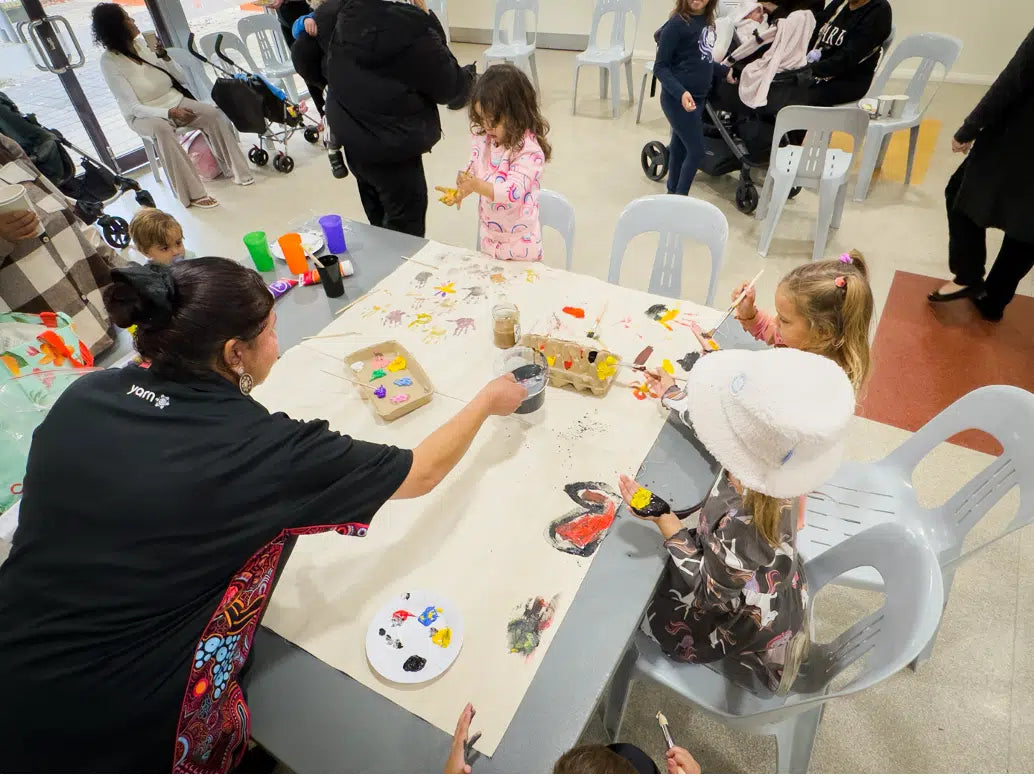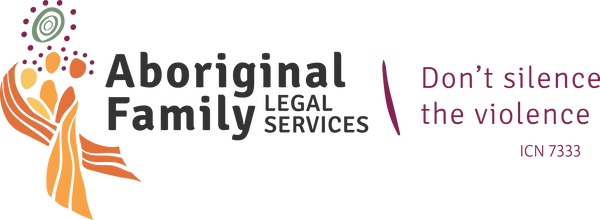

Community Education Programs
Alongside our lawyers and Family Advocates, our community engagement team delivers preventative, legal, and education sessions to build community understanding of family and domestic violence, teach about healthy relationships, model positive behaviours, and explain legal rights.
We partner with other organisations, corporations, and government bodies to develop and deliver programs to educate and raise awareness of family violence as it is experienced in Aboriginal communities.
More about our Community Education Initiatives
What is community education?
Community Education Support equips groups and communities with information and resources to advocate for their rights and navigate the legal system.
Aims of AFLS’ community education
Our community preventative education is led by our Community Engagement Workers (CEW), who are Aboriginal members from their local communities. This gives them a unique understanding of the complex challenges facing families in their local areas.
Using education as a powerful tool for prevention, AFLS’ programs and workshops assist communities to grow stronger, positive connections to their families and each other. We also promote the understanding that violence is not a part of Aboriginal culture and that healthy relationships are critical to thriving communities.
By raising awareness about legal rights, avenues for seeking help, and family and domestic violence issues, our programs aim to break the cycle and promote respectful relationships within communities.
To apply for an FVRO the court must be satisfied that:
- A family member has committed family violence or damage against you or another family member and it is likely that this will happen again;
- Even if there hasn’t been family violence yet, you or a family member has reasonable grounds to fear that a family member will commit family violence or damage against you or a family member;
- You are over the age of 16;
- You are the parent or guardian of a child under the age of 16;
A restraining order can stop a person doing certain things like:
- Being within a certain distance of the protected person
- Attending or being near the home or workplace of the protected person
- Forms of communication, either directly or indirectly through another person
- Contacting you or trying to contact you in any way, including texting, ringing, and on any social media platforms
If the person who is bound by the order does something that the FVRO says that can’t do, they are breaching the Order.
Examples of our community programs and workshops
Strong Girls Stronger Women
Through education this program is designed to empower teenage girls to grow safe and healthy relationships and ensure violence and abuse is not tolerated. In partnership with local schools we offer this activity to female Aboriginal students who are perceived to be emotionally, physically or socially vulnerable.
Healing Hands
Healing Hands is primarily aimed at Aboriginal women and girls who have experienced trauma through family violence. The program was developed to raise awareness about violence and sexual abuse issues and gives Aboriginal women and girls an opportunity to come together in a safe, comfortable environment and participate in a self-care session.
Sparkle and Grow
We designed this important program for Aboriginal women and girls to raise awareness of family and sexual violence issues, promote respectful relationships, and empower women and girls to recognise their own worth. It also introduces the community to the legal matters we can assist with.
Sparkle and Grow focuses on the strengths of the participants in the workshops. The activities in the program can help them build their self-esteem, so they can better stand up for their rights. This program is delivered by our education workers and solicitors, who provide the legal education aspect of the program.
How can we help?
Both our community education and legal education programs, led by our CEWs and lawyers, respectively, are delivered in schools, prisons, refuges, community services and through other in- and outreach methods. Our sessions helps build community understanding of family and domestic violence, healthy relationships, legal rights and the awareness of local support services.
Partner with us
AFLS is always on the lookout for opportunities to collaborate with other service providers, private companies, or local councils to deliver early intervention and community education initiatives that build community capacity to address and reduce rates of family and domestic violence.

